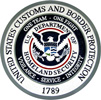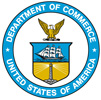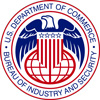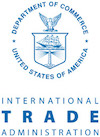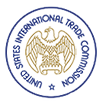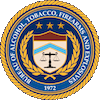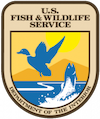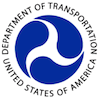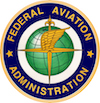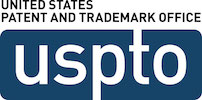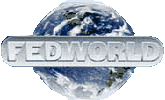GOVERNMENT AGENCIES
U.S. BUREAU OF CUSTOMS AND BORDER PROTECTION
On March 1, 2003 the border inspection functions of the U.S. Customs Service, Immigration and Naturalization Service, Animal and Plant Health Inspection Services and the U.S. Border Patrol were transferred to the Bureau of Customs and Border Protection under the auspices of the Department of Homeland Security.
However, the traditional mission of the United States Customs Service continues to be fulfilled along with a new priority of protecting the U.S. and its citizens from international terrorism. The mission still includes ensuring that all goods entering and exiting the U.S. do so in compliance with U.S. laws and regulations. Among other things, the Bureau is responsible for enforcing U.S. laws intended to prevent illegal trade practices; regulating the movement of persons, carriers, merchandise, and commodities between the United States and other nations; and, enforcing certain provisions of the export control laws of the United States.
BUREAU OF IMMIGRATION AND CUSTOMS ENFORCEMENT
On March 1, 2003 the enforcement functions of the U.S. Customs Service, and Immigration and Naturalization Service were transferred to the Bureau of Immigration and Customs Enforcement. This Bureau is also under the auspices of the Department of Homeland Security. The new bureau deals with enforcement of immigration and customs laws, protection of federal buildings, and air and marine enforcement.
U.S. FOOD and DRUG ADMINISTRATION
The Food and Drug Administration enforces the Federal Food, Drug, and Cosmetic (FDC) Act. With the exception of most meats and poultry, all foods, drugs, biologicals, cosmetics, medical devices, and electronic products that emit radiation are subject to examination and approval by FDA when they are imported or offered for import into the United States.
U.S. DEPARTMENT of COMMERCE
The mission of the Department of Commerce includes promoting U.S. competitiveness in the global marketplace by strengthening and safeguarding the nation's economic infrastructure.
U.S. DEPARTMENT of COMMERCE, Bureau of Industry and Security
The Bureau of Industry and Security controls exports for national security, foreign policy, and strategic supply reasons. Agents of the BXA administer the Export Administration Act by developing export control policies, issuing export licenses, and prosecuting violators.
U.S. DEPARTMENT of COMMERCE, International Trade Administration
The ITA implements a National Export Strategy by focusing on the Big Emerging Markets, by providing Industry and Country analyses for U.S.businesses and by supporting new-to-export and new-to-market businesses through strategically located U.S. Export Assistance Centers and by implementing major trade agreements, such as the General Agreements on Tariffs and Trade (GATT), North American Free Trade Agreement (NAFTA) and the Japan “Framework”.
U.S. INTERNATIONAL TRADE COMMISSION
The USITC is an independent, quasi-judicial U.S. Federal Agency that provides objective trade expertise to both the legislative and executive branches of government, determines the impact of imports on U.S. industries and directs actions against certain unfair trade practices such as patent, trademark and copyright infringement.
BUREAU OF ALCOHOL, TOBACCO, FIREARMS AND EXPLOSIVES
The Bureau of Alcohol, Tobacco Firearms and Explosives (ATF) is a law enforcement organization within the United States Department of Justice. The mission of ATF is to protect communities from violent criminals, criminal organizations, the illegal use and trafficking of firearms, the illegal use and storage of explosives, acts of arson and bombings, acts of terrorism, and the illegal diversion of alcohol and tobacco products
U.S. DEPARTMENT of AGRICULTURE
USDA helps American agriculture with commodity, credit, export, and risk management programs that improve the economic stability of agriculture and help farmers adjust to meet demand.
U.S. FISH and WILDLIFE SERVICE
The mission of the U.S. FWS is to conserve, protect, and enhance fish and wildlife and their habitats.
U.S. DEPARTMENT of TRANSPORTATION
The U.S. DOT serves as the focal point in the Federal Government for the coordinated National Transportation Policy. This Department is responsible for transportation safety improvements and enforcement, international transportation agreements and the continuity of transportation services in the public interest.
TRANSPORTATION SECURITY ADMINISTRATION
The TSA was established on November 19, 2001. The TSA has the responsibility to protect the nation's transportation systems in order to ensure freedom of movement for people and commerce.
FEDERAL AVIATION ADMINISTRATION
The FAA is responsible for the operation of the nation's air traffic control system as well as the certification of airmen, aircraft & airports, rulemaking and enforcement, and the promotion of civil aviation security.
U.S. PATENT and TRADEMARK OFFICE
The role of the Patent and Trademark Office (PTO) is to promote the progress of science and the useful arts by securing for limited times, to authors and inventors, the exclusive right to their intellectual property.
WORLD TRADE ORGANIZATION
The World Trade Organization (WTO) is the legal and institutional foundation for the multilateral trading system. It provides the principal contractual obligations determining how governments frame and implement domestic trade legislation and regulations.
FED WORLD
A Source for all U.S. Federal Agencies and U.S. Government data.
